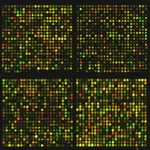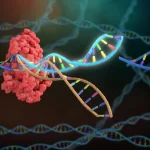
Navigating a Career in Bioinformatics: Essential Skills and Advice for Aspiring Professionals
December 27, 2024Bioinformatics is an exciting and evolving field at the intersection of biology, computer science, and statistics. Whether you’re a fresh graduate or a seasoned researcher considering a shift to industry, the path to a successful career in bioinformatics requires more than technical expertise. Based on recent hiring trends and challenges in the field, here’s a comprehensive guide to help you navigate your bioinformatics career journey.
1. Diversify Your Experiences
Bioinformatics thrives on adaptability. Employers value candidates with diverse experiences across biological topics, technologies, and computational techniques. If you’ve pursued a PhD or Postdoc on a niche academic topic, consider broadening your scope:
- Transition to a different research area or subfield.
- Experiment with new assay technologies.
- Collaborate with teams in diverse disciplines.
Diverse experiences not only make you a stronger candidate but also equip you to tackle multidisciplinary challenges effectively.
2. Master Hybrid Skill Sets
Bioinformatics is inherently interdisciplinary. While proficiency in coding (Python, R, or Bash) is a must, it’s only one piece of the puzzle. Employers seek professionals who:
- Understand core biological concepts such as gene regulation, evolution, or metabolic pathways.
- Can analyze and interpret data using statistical models.
- Navigate high-performance computing (HPC) systems or cloud platforms like AWS.
- Bridge communication gaps between biology and IT teams.
Avoid being narrowly focused on coding. Instead, position yourself as a “bioinformatics translator” who can connect computational insights to biological questions.
3. Prioritize Communication Skills
Bioinformatics professionals often work in collaborative settings, translating complex technical concepts for biologists, clinicians, or IT specialists. Effective communication is critical for:
- Explaining abstract concepts in simple terms.
- Presenting data-driven insights clearly and concisely.
- Building productive collaborations.
In hiring, communication skills can be a key differentiator. Practice articulating your research or technical contributions in layman’s terms to stand out.
4. Adopt a Growth-Oriented Attitude
In bioinformatics, no one knows everything. The field evolves rapidly, and staying open to learning is crucial. Hiring managers often prioritize candidates who demonstrate:
- Humility and a willingness to learn.
- Respect for team dynamics and professional etiquette.
- An understanding that time and resources are valuable.
Remember: professionalism and adaptability are as important as technical competence.
5. Anticipate Industry Expectations
Bioinformatics roles in industry are varied, spanning areas such as next-generation sequencing (NGS), data integration, drug discovery, and beyond. To prepare for these roles:
- Familiarize yourself with pipeline development and deployment.
- Understand database management (e.g., SQL) and system optimization.
- Gain exposure to emerging technologies such as generative models for protein design, machine learning for patient stratification, or systems biology.
Additionally, industry often emphasizes efficiency and scalability, so ensure your skills align with these priorities.
6. Breaking into Bioinformatics: Tips for Beginners
For new graduates or those transitioning into the field, the path can seem daunting. Here’s how to get started:
- Focus on Foundational Skills: Master Python, R, and Git. Build proficiency in handling real-world datasets and creating reproducible workflows.
- Gain Practical Experience: Contribute to open-source projects, complete internships, or work on personal projects that showcase your versatility.
- Start with Associate Roles: Even if you’re not immediately client-facing, entry-level roles provide invaluable on-the-job learning.
- Consider Advanced Education Carefully: A Master’s degree can help, but weigh its value against practical, hands-on experience.
7. Embrace Emerging Trends
Bioinformatics is constantly evolving. Staying updated on recent trends can enhance your employability. Current hot topics include:
- Multi-omics: Integration of genomics, transcriptomics, proteomics, and metabolomics to uncover comprehensive biological insights.
- AI and Machine Learning: Using predictive and generative models for drug discovery, patient stratification, and more.
- Cloud Computing: Leveraging platforms like AWS and Azure for scalable analyses.
- Single-Cell Technologies: Advancing precision medicine with single-cell genomics and transcriptomics.
Final Thoughts
A successful bioinformatics career is about balance—between technical skills and biological understanding, between specialization and adaptability, and between expertise and communication. Whether you’re aiming for academia, industry, or consulting, these principles will help you stand out in this dynamic field.
Ready to embark on your journey? Diversify, communicate, and stay curious. The world of bioinformatics awaits!


















